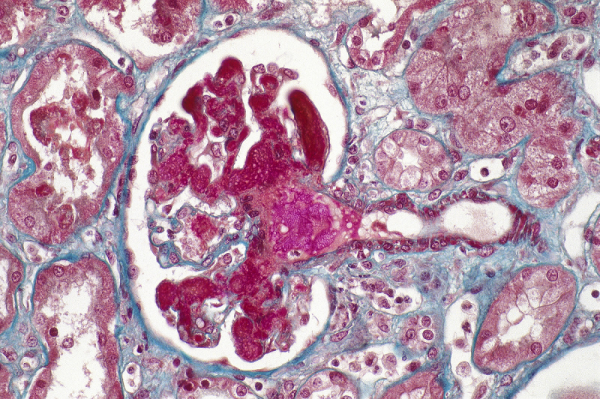Novel Urinary Biomarkers with Improved Diagnostic Performance to Enable Early Detection of Lupus Nephritis
January 25, 2024
Source: drugdu
 270
270

Systemic Lupus Erythematosus (SLE), widely known as lupus, is an autoimmune condition where the body's immune system mistakenly attacks its own tissues and organs. This disease can lead to inflammation affecting various body parts, including joints, skin, kidneys, blood cells, brain, and heart. Among its manifestations, lupus nephritis stands out as one of the most severe and common, often resulting in significant morbidity and mortality. Early detection of kidney involvement in lupus patients and prompt intervention are critical in mitigating the associated pain, suffering, and potential fatality. Now, researchers have discovered new biomarkers with improved diagnostic performance for the early detection of lupus nephritis.
In a significant advancement, a research team from the University of Houston (Houston, TX, USA) employed Proximity Extension Assay (PEA) proteomics—a method focused on the study of proteins in terms of their interactions, functions, compositions, and structures—on urine samples from lupus patients. This approach led to the discovery of several proteins that are markedly increased in the urine of those with active lupus-related kidney disease. The study reaffirmed the validity of various previously recognized urine biomarkers for active renal lupus, including ALCAM, CD163, MCP1, SELL, ICAM1, VCAM1, NGAL, and TWEAK. Moreover, the team uncovered additional urine protein biomarkers not previously identified, such as ICAM-2, FABP4, FASLG, IGFBP-2, SELE, and TNFSF13B/BAFF. Analysis of these molecules within the kidneys indicated that they might be released into the urine by both immune and non-immune cells present in the renal tissue.
“We and others have reported several urine proteins that can serve as harbingers of renal involvement in lupus,” said Chandra Mohan, a pioneer in lupus research from the University of Houston. “Here, we report on a novel technique based on the use of antibodies and DNA amplification that can detect even low concentrations of proteins. This technique is called Proximity Extension Assay (PEA).”
Source:
By editorRead more on
- The first subject has been dosed in the Phase I clinical trial of Yuandong Bio’s EP-0210 monoclonal antibody injection. February 10, 2026
- Clinical trial of recombinant herpes zoster ZFA01 adjuvant vaccine (CHO cells) approved February 10, 2026
- Heyu Pharmaceuticals’ FGFR4 inhibitor ipagoglottinib has received Fast Track designation from the FDA for the treatment of advanced HCC patients with FGF19 overexpression who have been treated with ICIs and mTKIs. February 10, 2026
- Sanofi’s “Rilzabrutinib” has been recognized as a Breakthrough Therapy in the United States and an Orphan Drug in Japan, and has applied for marketing approval in China. February 10, 2026
- Domestically developed blockbuster ADC approved for new indication February 10, 2026
your submission has already been received.
OK
Subscribe
Please enter a valid Email address!
Submit
The most relevant industry news & insight will be sent to you every two weeks.



